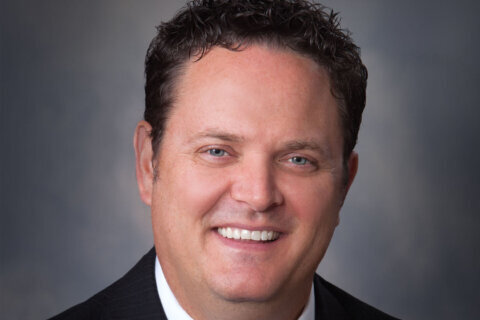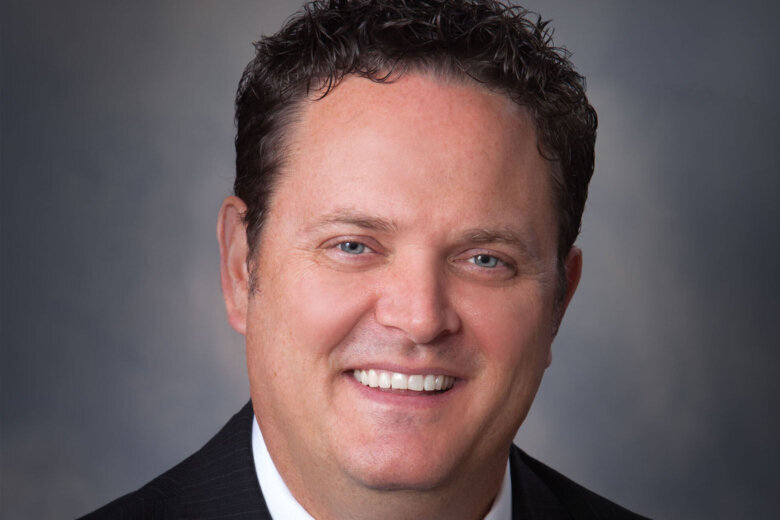
The number of students missing 18 or more school days a year is declining in Loudoun County Public Schools, but Superintendent Aaron Spence said the Virginia school system has updated its absence policy in response to absenteeism in a WTOP exclusive interview.
Spence, in his first year leading the school division of more 83,000 students, said that 12.2% of students are considered chronically absent this year. That’s down from 19% last year, but Spence said that is “still a high number for us.”
In response to student absences, the school district updated its attendance policy in late October. Now, absences because of family vacations are unexcused, unless they’re because of a family emergency or religious holiday.
Previously, Spence said, it was up to principals to decide that. But the updated policy no longer requires principals to determine whether an absence is excused or unexcused. Instead, the policy will be used to determine how an absence is categorized.
Still, both excused and unexcused absences could count toward chronic absenteeism, the term for when a student misses 10% or more of the school year.
School leaders across the D.C. region have been sounding the alarm about the rise in absences since kids returned to class in the aftermath of the pandemic. Many describe the importance of kids being in class to make sure they remain on track. Now, absenteeism is one of the factors the Virginia Department of Education uses to accredit schools.
“Absenteeism has always been an issue in our schools,” Spence said about the amount of attention the topic is now getting. “There’s been a lot of research emerging in the last decade or so around the connection between absenteeism and student achievement, which I certainly think is driving some of the conversation. And to be sure, we have seen those numbers grow rather dramatically during the pandemic.”
Students miss class for a variety of reasons, Spence said. In many cases, families take their kids out of school for trips, which he said is “quite a bit of what happens here in Loudoun County.”
The school district has created a multiyear calendar, so that families can plan trips well in advance, he said.
In some cases, Spence said students feel disconnected from school.
Leadership sometimes hears that “the students are just there.”
“They want to understand that when they get there that they’re going to feel a sense of belonging, that the adults like them,” he said.
A heightened awareness about student illnesses is also contributing to absenteeism, Spence said.
“In the past, parents may have sent their kids to school if they had a small fever, or if they were coughing and sneezing,” Spence said. “Now, I think parents are more sensitive to keeping their children home, even if that might be because it’s a cold or a flu, and not necessarily COVID related.”
Loudoun County’s biggest challenges with attendance are among kindergartners, as well as juniors and seniors in high school, Spence said.
In the case of kindergartners, families are entering the public school system for the first time, and Spence said “they’ve been used to having their children with them at home and they have to go to a doctor’s appointment and they can just go. We’re working with those families.”
Spence suspects high school juniors and seniors miss school because of a sense of independence.
“They’re probably making more decisions for themselves about whether or not they want to come to school,” he said.
However, Spence warned that there are consequences for all students missing class, particularly those in transition years, such as sixth or ninth grades.
“If an elementary school student misses 10 days of school because of a trip, they may have missed an entire unit of study,” Spence said. “And that’s very hard to come back from.”
The consequences, Spence said, vary.
“When you’re not in school, you can’t learn, and more so, not just what you’re missing that day, but then when you come back, you’re making that work up. And so you’re not able to give as much time to the new learning as you might need to give,” Spence said.
The school division has attendance personnel in every school, Spence said, and it’s partnering with local government and law enforcement to address the challenge and ensure students are in compliance with the state’s mandatory attendance policy.
As part of the updated policy, excused absences because of illness now cover mental health issues and substance abuse-related illnesses.
“Just as we would a student who is at home with the flu, we have to make sure that students who are dealing with mental health issues are getting the appropriate level of support from our mental health teams in our schools, but also outside in our community and with our community partners,” Spence said.
The county has an attendance dashboard that’s available to administrators, Spence said, and staff make personal calls regarding attendance instead of using a note or robocall.
“School divisions across the country are trying to figure out how to combat (absenteeism) and understand why those numbers have grown and what we might need to be doing differently,” Spence said.









